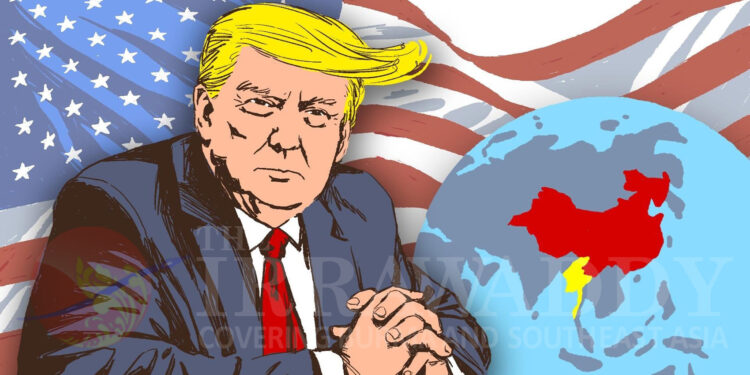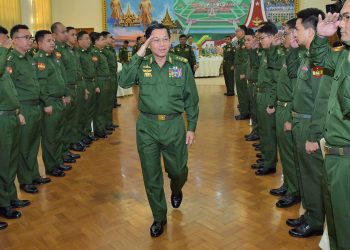President Trump’s sweeping election victory will have an effect on the world in terms of immigration, trade, defense, economics and climate change. Analysts share the view that Trump II will have profound impacts globally.
America remains the pre-eminent power; its economy is strong and resilient, it dominates artificial intelligence and its armed forces are second to none. Love it or hate it, America’s soft power and hard power are needed in this world. Therefore, America must not turn inward.
Under Trump II, it is expected that the US and China will enter a trade war as the administration imposes restrictions and tariffs. In Ukraine, Trump may push for a deal with Russia, and it is still uncertain where he will stand on the issue of Taiwan and the conflict in the South China Sea. What about the conflict in the Middle East, particularly Syria and the issue of Islamic State? US adversaries China, Russia and Iran are working together closely to undermine the US.
What about climate change? Experts argue that Trump’s return to the White House will have a hugely negative effect on climate change action in the short-term, but the longer-term impact is less certain.
The future is full of uncertainty and anxiety.
As US priorities shift under the new administration, how will Trump treat allies and partners (and rival China) in the Asia region?
Trump and his advisors know where China is located. But looking just a little further afield there is a country called Burma (or Myanmar—US governments still refer to this country as Burma). Initial observations are that the incoming administration has zero ideology and there is a fear that it will therefore have zero interest in Myanmar. But perhaps the Trump administration may show an interest in Myanmar due to rare earth mining in the country, minerals from which are largely exported to China.
After the 1988 nationwide uprising was brutally crushed by the military, the US paid attention to the democratic movement and then opposition leader Aung San Suu Kyi, and imposed sanctions. President George W. Bush and First Lady Laura Bush campaigned for the release of political prisoners in Myanmar and supported the cause.
President Barack Obama, who introduced the “Pivot to Asia” and visited Myanmar twice in 2012 and 2014, prematurely lifted sanctions. The Irrawaddy had an exclusive interview with him in 2014. However, the cautious optimism over Myanmar did not last long. Today, the military has reduced the country to ashes. Like Russian President Vladimir Putin, they are war criminals and thugs. The military in Myanmar forged alliances with Russia and China (after doing so in the past with North Korea and lately with Iran) and doesn’t want to see strong American leadership championing democracy and freedom, which don’t exist in their dictionary. When Trump came to power the first time, the Myanmar military and its cronies welcomed the development, seeing him as a right-wing nationalist not interested in talking about democracy and human rights.
Myanmar activists and opposition members will no doubt try to get the attention of the incoming administration and seek to stimulate its interest in Myanmar. But there is no certainty on how the US could assist.
Since the coup in 2021, Myanmar has been in turmoil; the United States has downgraded its relationship with Myanmar and imposed a range of sanctions on the junta.
The US Congress passed the 2022 BURMA Act to help improve US initiatives to support the people of Myanmar on the road towards a democratic future. However, there has been no implementation and the new administration will need to be proactive to execute it.
So while some interest in Myanmar remains in DC, mainly at the State Department, it is feared that the Trump administration’s interest in the country and in Southeast Asia generally will be low.
In the absence of the US, in contrast, China will advance its geostrategic interests in Myanmar and Southeast Asia. China’s geographical proximity to Myanmar and its significant investment and infrastructure plans for the country are seen as crucial in Beijing.
China has intensified its efforts to expand its military, political, economic power and influence to counter US interests in the world.
In fact, Myanmar people want to see a strong international response and support from the US. To counter their giant neighbor China, Myanmar democratic forces (and future civilian governments) will no doubt need US leadership and that of likeminded countries in the Asia region.
If Senator Marco Rubio is confirmed as Secretary of State, it is expected that his foreign policy approach will be aggressive toward China. To that end, Rubio could display an interest in Myanmar if he wants to showcase that he is a tough man with values and principles. He should speak up for the people of Myanmar. Sadly, in Southeast Asia, Myanmar provides an excellent example for him to show his leadership in the State Department. Will he attack Obama’s flawed policy on Myanmar and pivot to Asia, as well as Cuba?
It is important to remember that the US is an Indo-Pacific nation, and the region is the fastest-growing on earth, accounting for 60 percent of global GDP as well as two-thirds of global economic growth.
Since the release of the Indo-Pacific Strategy in February 2022, the United States has taken historic strides to advance its shared vision for an Indo-Pacific region that is free and open, connected, prosperous, secure, and resilient. The challenges and opportunities of the 21st century show that we can build a better future together.
In line with MAGA (Make America Great Again, Trump’s slogan) it should be established that America is back again. The US does not have the privilege of retreating. Remember that under the junta, Myanmar is a thorn in the side of the free and prosperous Indo Pacific region—it should not become a forgotten crisis.
















